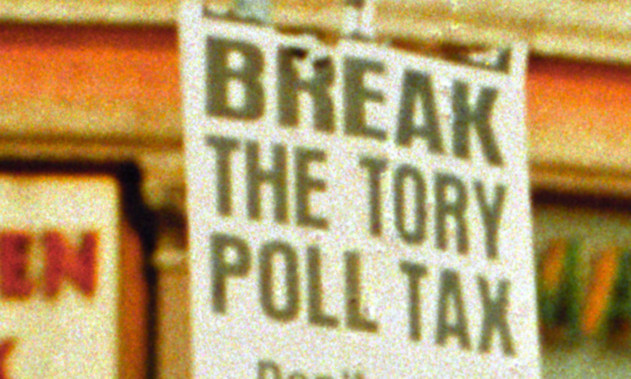Angus has said farewell to one of the longest-lasting “experiments” of the Thatcher era after 20 years.
The decision to write off the remnants of owed community charge known to a generation of Scots as the “poll tax” has been taken by Angus Council.
Councillors approved the measure after two decades of failing to gather more than £3,500, which has sat uncollected for between the period 1989 and 1993. It is understood the number of people still owing poll tax is “in double figures”.
Corporate services committee convener and SNP councillor Alex King said committee approval would herald “the end of the tunnel” for one of the previous Conservative Government’s most divisive policies.
Mr King discussed the symbolic gesture, set among much larger write-offs in council rates, in Forfar.
He said: “One thing that’s encouraging is that after nearly 20 years we’ve managed to get to the end of the poll tax.”
“An awful lot of money has been written off the account over the years,” he added.
“It’s good we can see the end of the tunnel for that particular experience that experiment. Arrangements are in place to have the collection of other rates finalised within the next four years.”
Strategic director for resources Mark Armstrong’s report said the rest of the poll tax dues have now been written off, although “the council is still trying to collect arrears due after 20 years.”
However, the region’s Conservative MSP Alex Johnstone said “grandstanding” on poll tax masked what he believes to be a “failure” in council arrears collection.
“Many people will be astonished at the sums of money being written off and will question why Angus Council has failed to collect these sums over a period which spans decades,” he said.
“The bottom line is that the community charge, despite efforts to rewrite history by some, was about everyone contributing something to the pot that pays for the services that everyone in the community uses.
“This kind of hand-wringing achieves little more than highlighting the fact that some people remain firmly stuck in the past while the world has moved on.”
Former prime minister Baroness Thatcher was the first woman in the post and helmed the UK Government between 1979 and 1990.
The poll tax, was introduced in Scotland in 1989 as a replacement of council rates, with England and Wales seeing its introduction the next year.
It provided for a single flat-rate per-capita tax on every adult, at a rate set by the local authority, and lasted for four years until it was replaced by council tax, which saw a return to charging based on the approximate value of a house.
In Scotland, anti-poll tax unions called for mass non-payment and unrest mounted south of the border.
A series of demonstrations culminated in the infamous Trafalgar Square riot in London on March 31, 1990 a week before the implementation of the tax.
As the community charge began to rise and the inefficiency of local councils in collection of the tax became apparent, large numbers of people refused to pay.
Local councils tried to respond with enforcement measures, but these were largely ineffective against such huge numbers of non-payers up to 30% of former ratepayers in some areas refused to pay, according to the BBC.
The successful candidate, John Major, appointed Heseltine to the post of environment secretary, responsible for replacing the community charge.
The abolition of the community charge was announced on March 21, 1991, with the council tax beginning from the start of the 1993/94 financial year.
Were you one of those who refused to pay the poll tax in Angus? Contact us on 01382 575893.
